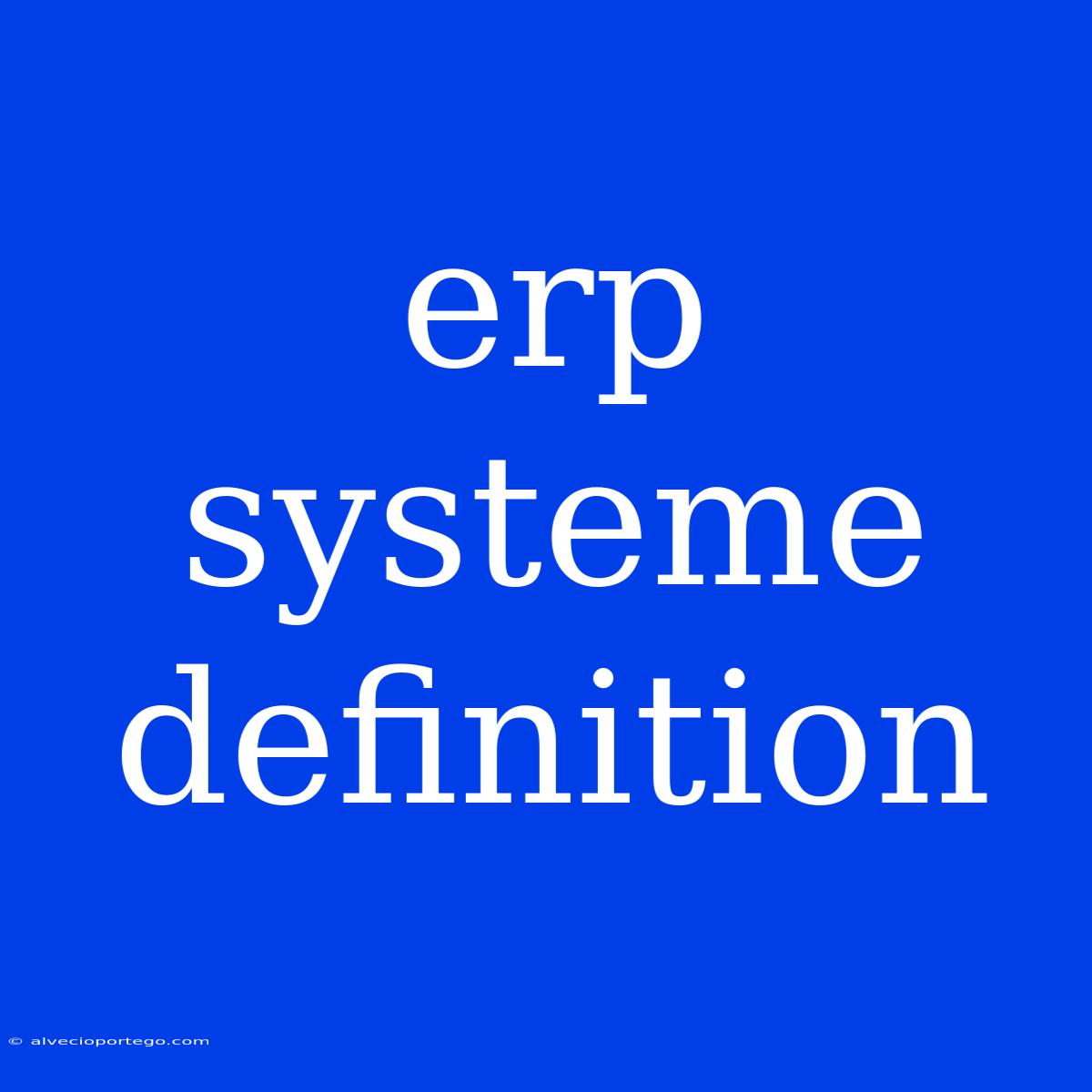What is an ERP System?
An ERP (Enterprise Resource Planning) system is a software solution that integrates various business processes and data across an entire organization. It helps businesses manage and automate crucial functions, including finance, human resources, supply chain management, customer relationship management (CRM), manufacturing, and more.
Key Features of an ERP System:
- Integrated Data: ERP systems centralize data from various departments, providing a single source of truth and eliminating data silos. This helps improve decision-making by providing a comprehensive view of the business.
- Automation: Many repetitive tasks can be automated, freeing up employees to focus on strategic initiatives.
- Improved Efficiency: Streamlining processes, reducing manual errors, and improving communication contribute to a more efficient workflow across the organization.
- Real-Time Visibility: Real-time access to critical data allows for informed decision-making and proactive problem-solving.
- Scalability: ERP systems can adapt to the growth of a business, ensuring it can handle increasing demands and volumes.
- Reporting and Analytics: Robust reporting and analytics capabilities provide insights into performance, identify areas for improvement, and support strategic planning.
Benefits of Implementing an ERP System:
- Increased Profitability: By optimizing processes and reducing costs, ERP systems can significantly boost a company's bottom line.
- Improved Customer Satisfaction: Enhanced communication, efficient order fulfillment, and better customer service lead to increased customer satisfaction.
- Better Decision-Making: Access to accurate and up-to-date data empowers managers to make better informed decisions.
- Enhanced Compliance: ERP systems can help businesses comply with relevant regulations and industry standards.
- Stronger Competitive Advantage: By improving efficiency and effectiveness, an ERP system gives businesses a competitive edge in the marketplace.
Types of ERP Systems:
There are different types of ERP systems available, each designed for specific industry needs. Some popular categories include:
- Cloud-based ERP: Hosted on a cloud platform, offering scalability, affordability, and accessibility.
- On-premise ERP: Installed and maintained on a company's own servers, providing more control and customization.
- Industry-Specific ERP: Tailored to meet the specific requirements of industries like manufacturing, retail, healthcare, and financial services.
Choosing the Right ERP System:
Selecting the right ERP system requires careful consideration of factors such as:
- Business Size and Needs: Assess the company's current and future needs in terms of functionality, scalability, and integration.
- Budget: Consider the initial investment costs and ongoing maintenance expenses.
- Implementation Complexity: Evaluate the time and resources required for implementation.
- Vendor Support: Choose a vendor with a proven track record and strong customer support.
Conclusion:
An ERP system is a powerful tool for businesses looking to improve efficiency, enhance decision-making, and gain a competitive advantage. By carefully selecting the right system and implementing it effectively, organizations can unlock a wide range of benefits and drive business success.

